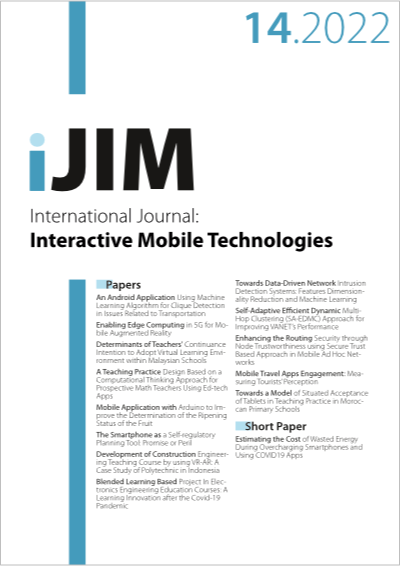The Smartphone as a Self-regulatory Planning Tool
Promise or Peril
DOI:
https://doi.org/10.3991/ijim.v16i14.28783Keywords:
academic planning, self-regulated learning, smartphone, mobile learning, smartphones and learningAbstract
This study examines the relationship between student planning, smartphone use, and course achievement. The ubiquitous smartphone can promote or hinder learning depending upon how it is used. Prior research has explored overall smartphone use (e.g., hours used) and generally found negative relationships with academic achievement. This study investigates the learner’s approach to a specific academic endeavor, planning, and how the choice of support tools may relate to self-regulated learning skills and course grade. First-year college students reported on their approach to academic planning and how popular tools such as the smartphone and/or a planner were used to that end. The results indicated a strong relationship between both modes of planning and self-regulated learning skills (planner, R = .305, p < .01; smartphone, R = .157, p <.01). The modes of planning had a differing effect on course grades when controlling for self-regulated learning skills with the smartphone planning demonstrating a negative influence (ß = -.078, p < .05) and the planner or notebook demonstrating a positive influence (ß = .082, p < .05). The findings suggest that teachers and students should critically examine the tools they use to support academic goals.
Downloads
Published
How to Cite
Issue
Section
License
Copyright (c) 2022 Kendall Hartley, Emily Shreve, Dan Gianoutsos, Lisa Bendixen

This work is licensed under a Creative Commons Attribution 4.0 International License.



